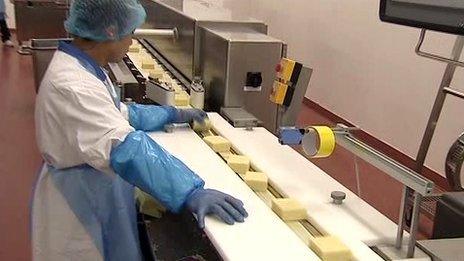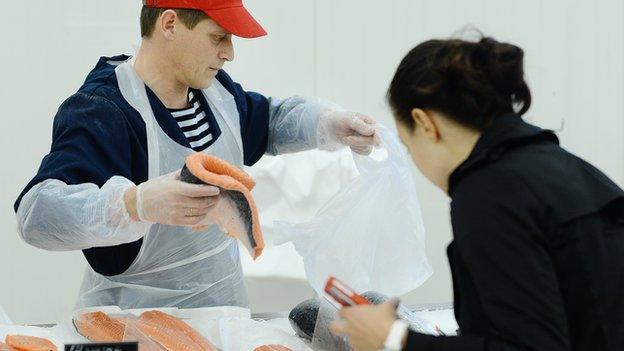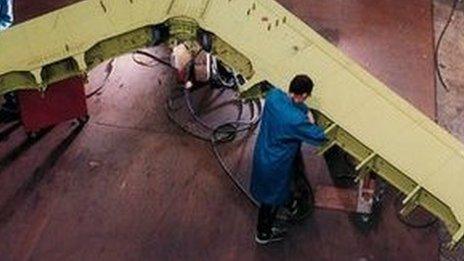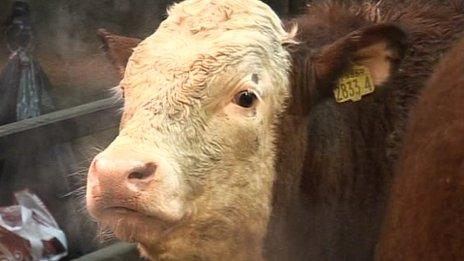Russian ban may hit Northern Ireland food exporters
- Published

Cheese forms a major part of Northern Ireland's food exports to Russia.
Russian sanctions on western food imports could hit Northern Ireland's food exporters.
The Northern Ireland Food and Drink Association warned that it could result in over-supply of export markets on which local producers depend.
Executive director, Michael Bell, said "much will ride on the duration and severity of these sanctions"
Russia is imposing a "full embargo" on food imports in response to sanctions over Ukraine.
Mr Bell said the association would be "monitoring developments closely".
Northern Ireland exported almost £3m worth of food to Russia in 2013/14.
The Ulster Farmers' Union (UFU) said it was concerned by Russia's decision to ban all food imports from EU countries.
UFU president Ian Marshall said: "Any barrier to trade is a cause for concern, especially as the Northern Ireland agri-food industry is predominately export driven."
He said Russia's decision demonstrated the "volatility of the world export market".
'Impact'
"It is likely that that NI's dairy industry will feel the effects of the decision first, but it will ultimately have implications for the entire agri-food industry.
"Of the milk and milk products we produce almost 80% of them go to markets outside NI and while Russia only makes up a small percentage of this, the ban on food imports will have an impact on those who have had the initiative to break into the Russian market.
"At present, there are no NI red meat, pork or poultry imports into Russia so those sectors will not be immediately impacted by the ban."
In January 2014, local dairy producer Dale Farm announced an order for £1.7m worth of cheese for export to the country.
At the time, the Dale Farm's chief executive, David Dobbin said: "Russia is becoming a key cheese export market for us."
'Sanctions'
"From entering the market two years ago with an initial contract for 100 tonnes of cheddar we have now sold over 2,500 tonnes."
In July, the EU and US tightened sanctions on Russia, with Brussels applying restrictions to key sectors of the economy as well as individuals.
The first round of sanctions came after Russia annexed Ukraine's Crimea region in March.
Russian Prime Minister Dmitry Medvedev said the import ban would include fruit, vegetables, meat, fish, milk and dairy imports.
The sanctions take effect immediately.
- Published7 August 2014

- Published6 February 2014

- Published7 March 2012
